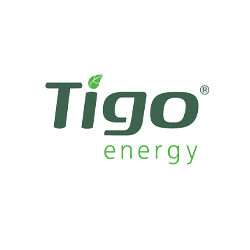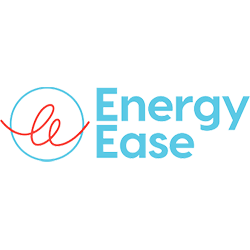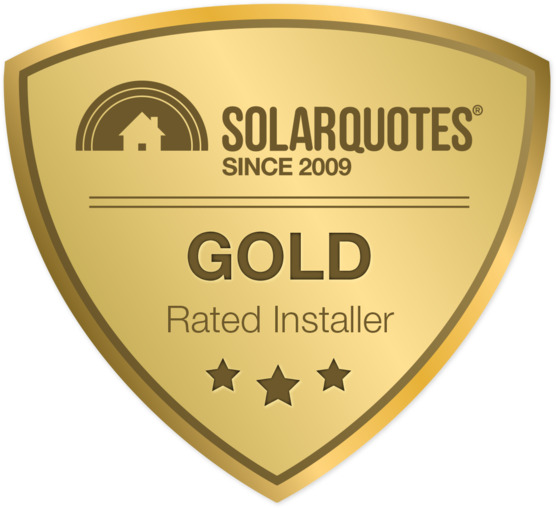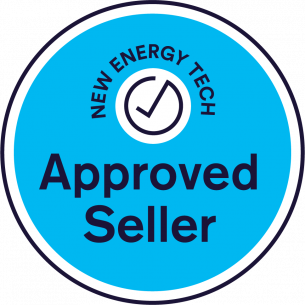Energy Independence
Solar and Batteries
A solar and battery combo is also known as Hybrid solar. It is much like Grid connect solar but instead of feeding the excess electricity back to the grid, the system feeds the surplus electricity into the batteries.
The way it works is that the solar PV unit powers your daytime use in the home and any electricity not used gets put into the batteries to cover your night time use.
You are still connected to the grid so if it rains for a week and your solar output is low and the batteries do not get charged as much as you need, you can still draw electricity from the grid. (The benefit of this set up is that it saves having an extra-large battery bank that is only occasionally used which therefore saves a lot of extra costs)
Whereas in an off grid system you use a generator as back-up. In a hybrid system you would use the grid as the backup. Generous government incentives, the same that apply to residential solar apply to grid connected hybrid systems.
Off grid systems
An off-grid solar power system is the eco-friendly alternative to grid-connect that allows you to be completely independent of the power grid and means no power bills, ever! These systems are often referred to as “stand-alone” or “remote area” power systems.
Off-Grid solar power is the perfect solution for homes and businesses that do not have a reliable power supply, or who choose to be independent of the mains electricity grid.
When it comes to remote building blocks, often it is cheaper to install a fully independent stand-alone system, than run the grid power cables to the block, which is very expensive, for relatively small distances.
SolarWide designs, supplies, and installs off-grid solar power systems that provide safe and reliable power for a range of applications. From small holiday cabins to large homes and businesses, they can all be supplied from an off-grid solar system.
As off-grid systems are more often remotely located we will travel from the Sunshine Coast as far as Gympie and beyond in greater Queensland to install this form of solar.
When it comes to off-grid, every SolarWide designed PV system is customised, taking into account your likely daily electricity use and budget to recommend the correct system and battery size, as well as the most suitable technology.
FAQ's
How does off-grid solar work?
One advantage of off-grid solar is its ability to produce more solar power than needed in the house and then store it in the batteries. The other advantage is that there is now need to pay the dreaded supply fee to the energy retailer.
If you don’t have your house connected to the grid, you naturally need a large battery bank. But if you are grid connected, then your house would draw power from the power grid if your solar system wasn’t producing enough electricity.
Off-grid solar is different. A off grid home solar battery might look something like a modified car battery. However, they are much bigger than an average car battery.
A large deep-cycle battery is often used for an off-grid solar battery. There are many sizes. There are some that are very small for a small remote bedsitter and others that are large, for farms or large families.
You should ensure that the solar battery you are considering purchasing is big enough to power all your needs and has enough power to run your entire home. Otherwise you will need to invest into a back up generator, which jumps into action, should your battery run empty. You will also want to make sure the batteries are durable and of high quality. You don’t want them to be constantly replacing and repairing and have your home without power.
Off-grid solar is a unique investment, but it can also be very useful and productive when used in the right conditions.
What are the key technologies of off grid batteries on the market?
These are tried and tested over many years and have proved to be a reliable technology with the depth of discharge being able to down to 50% of capacity. So for example if you have a 20kWh battery bank, then after you have drawn /discharged 10 kWH, it is advisable to recharge the set, in order to ensure longevity of the battery bank. The deep cycle batteries have a long life cycle and are designed for slow charging which is perfect for solar power systems. The disadvantage is they are large, heavy and take up quite some space
Lithium Iron Phosphate
The main advantage of this technology is size, weight, portability and speed of charging which is great for electric cars and computers etc.. Fast charging is not that vital for solar , but still a nice feature to have.
The depth of discharge is said to be greater than deep cycle batteries, whereby one can discharge easily up to 80% of capacity. The main disadvantage is the cost, whereby because of the demand for modern batteries in electric cars, Tesla and other home batteries the price has not reduced for quite a few years, despite an increase in production numbers and demand.
Lithium-ion batteries take up less space and are more expensive than AGM tubular gel batteries.
Is off-grid battery storage safe?
Lead-acid batteries used in off-grid are generally safe and easy to recycle. It is important to note that lead-acid batteries can produce an explosive mixture of oxygen and hydrogen gas during charging. The danger level is similar to household gas and gasoline-powered cars being parked in your garage.
Proper ventilation is essential in these instances, to avoid the build-up of gases. It is not a problem as serious as it sounds, but it is important to avoid a potentially dangerous situation by taking proper care of lead-acid storage and making sure they are housed in an area with proper ventilation. Lead-acid batteries are mainly used in off-grid systems, and the modern lithium-ion home solar batteries do not have this issue.














